Global Market

What role does natural gas play in the global energy market ?
Natural gas is a key player in the global energy market due to its environmental advantages, economic benefits, contributions to energy security, technological advancements, and versatile applications across sectors.
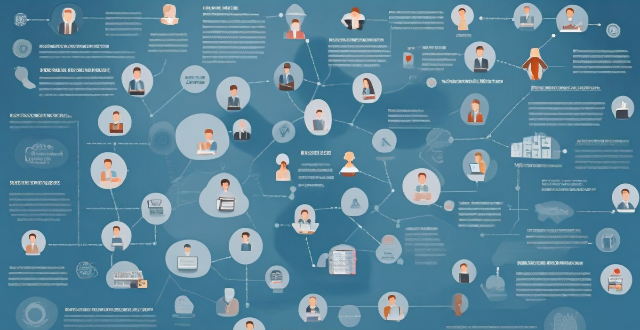
How might a lunar base influence the global economy and job market ?
The establishment of a lunar base could significantly impact the global economy and job market by increasing investment in space technology, creating new industries, driving innovation, and fostering international collaboration. It could also create numerous job opportunities and expand educational opportunities focused on space-related disciplines.

What is the impact of financial regulation on global financial markets ?
Financial regulation is vital for maintaining stability and efficiency in global financial markets. It influences market stability by reducing volatility and preventing crises, improves risk management through enhanced transparency and control over high-risk practices, protects investors from fraud and unfair trading practices, and fosters innovation while ensuring safety and compliance. This balance is crucial for the health and growth of the global economy.

What is the current state of the US stock market ?
The US stock market is currently experiencing a mix of positive and negative trends, including strong economic growth and technology sector performance, but also significant market volatility and trade tensions. Factors impacting the market include interest rates, global economic conditions, and geopolitical risks.

What are the economic implications of global warming for different countries ?
Global warming has significant economic implications for countries worldwide, affecting sectors like agriculture, health, infrastructure, insurance, energy, and labor markets. Developing nations often face challenges related to food security, health concerns, and infrastructure damage due to extreme weather events. Developed nations may see impacts on insurance and property markets, the energy sector, and labor productivity. Globally, there can be trade disruptions, migration and security issues, and financial market fluctuations. Coordinated international efforts are crucial to mitigate these effects and adapt to the changing environment.

What are the challenges and opportunities for developing countries in the carbon trading market ?
Challenges and opportunities for developing countries in the carbon trading market include lack of infrastructure, legal and regulatory hurdles, market access and information asymmetry, capacity building needs, economic growth and investment, technology transfer and innovation, environmental sustainability, policy influence and leadership.

What are the potential benefits and drawbacks of using market-based mechanisms like carbon trading in global climate governance ?
The text discusses the potential benefits and drawbacks of using market-based mechanisms like carbon trading in global climate governance. The benefits include cost-effectiveness, flexibility and innovation, economic incentives, and global cooperation. However, there are also drawbacks such as equity concerns, complexity, uncertainty, and lack of public acceptance. It is important to consider these factors carefully when designing a carbon trading system to ensure that it is equitable, transparent, and effective in reducing carbon emissions.

What is the carbon trading market ?
The carbon trading market is a financial mechanism that allows for the trading of emissions reductions to meet greenhouse gas emission targets. It is based on cap-and-trade, where a limit is set on total emissions and those who reduce their emissions below the cap can sell their surplus allowances. Key components include carbon credits, emissions caps, trading mechanisms, verification and certification, and regulation and governance. Benefits include cost-effectiveness, flexibility, innovation incentives, and global collaboration. Challenges and criticisms include equity concerns, market inefficiencies, environmental integrity, and political will. The carbon trading market serves as a crucial tool in the fight against climate change but requires ongoing attention and improvement to maximize its effectiveness.

How do political events affect the stock market, and how can they be analyzed ?
This comprehensive analysis explores the impact of political events on the stock market, including economic policies, regulatory changes, international relations, and elections. It also provides strategies for analyzing their potential effects, such as staying informed, diversifying your portfolio, using technical and fundamental analysis, and monitoring sentiment indicators.

How can I protect my growing wealth from market fluctuations ?
Market fluctuations are a natural part of any investment journey. However, as your wealth grows, it becomes increasingly important to implement strategies that can help protect your assets from the ups and downs of the market. Here's how you can do it: - Diversify Your Portfolio - Use Hedging Strategies - Stay Updated on Economic Indicators - Regularly Review and Rebalance Your Portfolio - Work with Financial Advisors

How has the COVID-19 pandemic impacted the stock market, and what insights can be gained from this analysis ?
The COVID-19 pandemic has caused increased volatility and uncertainty in the stock market. Certain industries, such as travel and hospitality, have been negatively impacted while others, like healthcare and technology, have experienced growth. Government interventions aimed at mitigating economic effects have both stabilized markets and created long-term concerns. The rise of remote work and digital transformation has benefitted companies able to adapt quickly. As economies begin to recover with widespread vaccination, investors should monitor developments closely to make informed decisions.
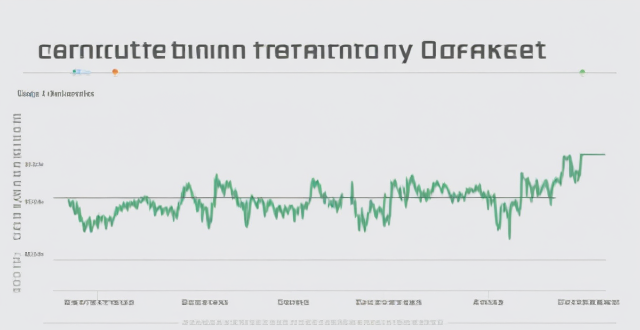
How can I invest in the carbon trading market ?
The carbon trading market offers a lucrative investment opportunity for those interested in environmental sustainability and financial gain. To invest successfully, one should understand the basics of carbon trading, research different carbon markets, choose a broker or exchange, determine an investment strategy, and start trading while managing risk.

How are carbon credits traded and what is their market value ?
The article discusses the trading of carbon credits, which are tradable permits allowing holders to emit certain amounts of greenhouse gases. It explains how carbon credits are traded and their market value, outlining steps in their creation, verification, issuance, trading, and retirement. It also notes that the market value of carbon credits varies based on project type, location, and demand for offsets.

How does global shopping affect local businesses ?
Global shopping has become increasingly popular due to the rise of e-commerce platforms and international shipping services. While it offers consumers a wider range of products and competitive prices, it also poses challenges for local businesses such as increased market competition, job displacement, cultural homogenization, environmental impact, intellectual property rights issues, and economic dependency. As consumers continue to embrace global shopping, it is crucial for local businesses to adapt and find ways to differentiate themselves in order to remain competitive and sustainable in the long run.

What are some common mistakes made in stock market analysis ?
The text discusses common mistakes made in stock market analysis, including relying too heavily on past performance, ignoring market volatility, failing to consider external factors, focusing solely on technical analysis, emotional bias, inadequate diversification, neglecting tax implications, and overconfidence in predictions. To avoid these mistakes, analysts and investors should consider a range of factors beyond historical data, incorporate an understanding of market fluctuations into their analysis, take into account both internal and external influences, use a balanced approach that combines technical and fundamental analysis, maintain objectivity, diversify investments, be aware of tax implications, and remain humble and flexible when dealing with uncertain markets. By avoiding these mistakes, analysts and investors can make more informed decisions and potentially improve their chances of achieving successful outcomes in the stock market.

What are the benefits of participating in the carbon trading market ?
Participating in the carbon trading market offers a multitude of benefits, which can be categorized into environmental, economic, and social aspects. Here are some of the key advantages: 1. **Environmental Benefits**: - Reduction in Greenhouse Gas Emissions: The primary goal of carbon trading is to reduce greenhouse gas emissions by creating financial incentives for companies to adopt cleaner technologies and practices. This helps to mitigate climate change and its associated impacts on ecosystems and biodiversity. - Promotion of Renewable Energy Sources: As companies strive to reduce their carbon footprint, they are more likely to invest in renewable energy sources such as solar, wind, and hydroelectric power. This shift towards green energy promotes sustainable development and reduces reliance on fossil fuels. - Enhanced Energy Efficiency: Carbon trading encourages businesses to improve their energy efficiency, leading to reduced energy consumption and lower operating costs. This results in fewer resources being used and less waste generated. 2. **Economic Benefits**: - Creation of New Industries and Jobs: The growth of the carbon trading market has led to the emergence of new industries focused on developing and implementing low-carbon technologies. These industries create job opportunities and contribute to economic growth. - Potential for Profitability: Companies that effectively manage their carbon emissions can generate additional revenue by selling excess emission allowances or credits. This provides an incentive for businesses to become more environmentally friendly while also increasing their profitability. - Access to International Markets: Participation in the carbon trading market allows companies to access global markets and take advantage of international trade opportunities related to low-carbon products and services. 3. **Social Benefits**: - Improved Public Health: By reducing air pollution caused by greenhouse gas emissions, carbon trading can lead to improved public health outcomes. This includes reductions in respiratory illnesses, heart disease, and other health issues associated with poor air quality. - Increased Awareness and Education: The existence of a carbon trading market raises public awareness about climate change and its implications. This increased understanding can drive behavioral changes among consumers, leading to more sustainable choices and lifestyles. - Community Engagement: Carbon trading projects often involve local communities, providing opportunities for community engagement and empowerment. This can lead to improved infrastructure, enhanced educational programs, and increased social cohesion within affected areas.

What are the best practices for pricing items in a second-hand market ?
When selling items in a second-hand market, it's essential to follow best practices for pricing to maximize profits and ensure a smooth transaction. Key tips include researching market value, considering the item's condition, setting a fair price, being open to negotiations, and updating the listing regularly. By following these guidelines, sellers can attract more potential buyers and increase their chances of making a successful sale.
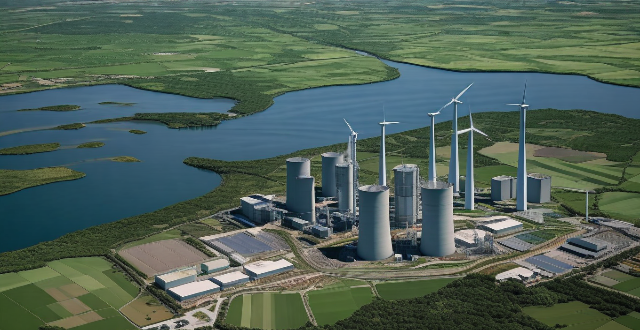
How is the demand for electricity affecting the energy market ?
The demand for electricity is a crucial factor that affects the energy market. As the world becomes more reliant on electricity, the demand for it continues to grow. This increased demand has significant implications for the energy market, including the types of energy sources used, the cost of electricity, and the environmental impact of energy production. The key points include population growth, economic development, technological advancements, diversification of energy sources, investment in infrastructure, cost of electricity, environmental impact, renewable energy sources, energy efficiency, smart grid technology, and electric vehicles. By considering sustainable energy solutions, we can work towards a more sustainable and equitable energy future.

What are the long-term implications of climate change for global food trade and market stability ?
Climate change is expected to impact global food production, trade, and market stability significantly. Reduced crop yields, unpredictable harvests, decreased livestock productivity, increased disease prevalence, shifting production zones, and increased competition for resources are some of the long-term implications. These changes can lead to price volatility, increased vulnerability to food insecurity, and economic challenges for farmers and consumers. Addressing these challenges requires a collaborative effort from governments, international organizations, and stakeholders across the food system to develop strategies that promote resilience and adaptive capacity in the face of climate change.

What are the risks associated with investing in the carbon trading market ?
The carbon trading market offers lucrative investment opportunities but also carries significant risks, including price volatility, lack of transparency, legal and regulatory changes, and environmental impacts. To mitigate these risks, investors should diversify their portfolios, conduct thorough research, stay updated on regulatory changes, and consider the environmental impact of their investments. By taking these steps, investors can potentially reduce their exposure to risks while still benefiting from the profitability of the carbon trading market.

What is the correlation between housing market indicators and the overall economy ?
The housing market is a significant indicator of the overall health of an economy, intertwined with employment, consumer spending, and financial markets. Housing starts and permits signal economic growth; existing home sales reflect consumer confidence; home price indexes affect household wealth and consumer spending; mortgage rates influence home purchases; inventory levels indicate market strength or challenges; builder confidence suggests future construction trends; foreclosure rates reveal economic distress; and rental market trends show limited purchasing options. These indicators provide insight into different facets of the economy, painting a comprehensive picture of the housing market's health and its relationship with the overall economic condition.

How has social distancing impacted the economy and job market ?
Social distancing measures have had a significant impact on the economy and job market, including decreased consumer spending, supply chain disruptions, high unemployment rates, increased demand for remote work, and changes in job seeking behavior.
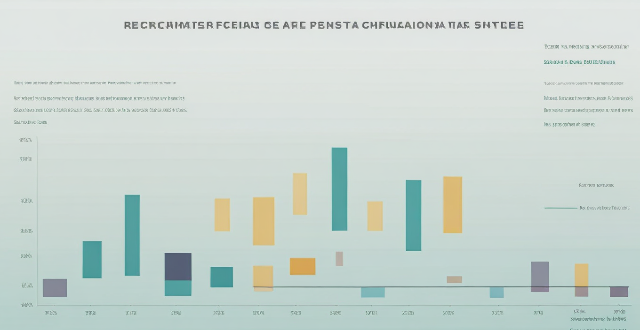
Who are the main financial regulators in the world ?
Financial regulators worldwide play a pivotal role in maintaining the stability and integrity of the global financial system. Key institutions include the SEC, Fed, CFTC, and FINRA in the US; ECB and ESMA in the EU; BoE and FCA in the UK; BoJ and FSA in Japan; and PBOC and CBIRC in China. The Basel Committee on Banking Supervision and IOSCO also set global standards for bank regulation and securities markets, respectively. These regulators collaborate to address cross-border issues and enhance the health and integrity of the global financial system through implementing regulations, monitoring market activities, promoting transparency, and taking action against illegal or unethical practices.

How does global shopping contribute to economy ?
Global shopping, or cross-border e-commerce, has become a crucial aspect of the global economy. It involves buying and selling goods and services across national borders through online platforms. This phenomenon has not only revolutionized shopping but also significantly contributed to economic growth worldwide. Here are some ways global shopping boosts the global economy: 1. Increased consumer spending: Global shopping provides consumers with access to a wide range of products from around the world, leading to higher consumer spending, which is a key driver of economic growth. 2. Benefits for sellers: Businesses can reach new customers and expand their market share by tapping into international markets, increasing revenue and profitability. 3. Job creation and employment opportunities: The rise of global shopping has given birth to numerous jobs in various sectors such as logistics, customer service, marketing, and technology. 4. Boosting local economies: Local businesses can reach customers beyond their geographical boundaries by exporting their products globally, generating revenue that helps sustain their operations and contribute to the local economy. 5. Encouraging innovation and competition: The global marketplace created by cross-border e-commerce encourages businesses to innovate and improve their products to stay competitive, benefiting consumers by providing them with high-quality products at competitive prices. 6. Fostering international trade relations: Global shopping promotes cooperation between nations by facilitating trade agreements and reducing barriers to entry for businesses looking to expand internationally.
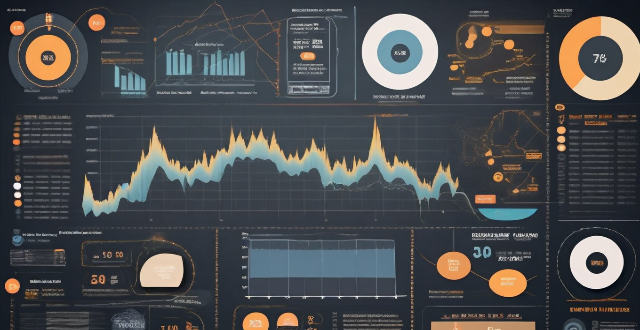
How do you use historical data to make predictions about future stock market performance ?
Predicting the stock market's future performance is a complex task that involves analyzing various factors. One common method used by investors and analysts is to study historical data, which can help make informed predictions about future market performance. To use historical data for stock market predictions, it is essential to identify key metrics such as price movements, volume, earnings reports, and economic indicators. Once these metrics are identified, analyze the historical data to identify trends and patterns through technical analysis techniques like moving averages, support and resistance levels, and candlestick patterns. Additionally, consider using fundamental analysis to evaluate underlying factors that drive stock prices, such as financial statements, industry trends, and macroeconomic factors. With the advancement of technology, machine learning and AI models have become popular tools for predicting stock market performance, including neural networks, reinforcement learning, and deep learning. Combining different methods of analysis can lead to more accurate predictions about future stock market performance. However, it's important to remember that no method is foolproof, and there will always be an element of risk involved in investing in the stock market.

Can global shopping help in finding unique and rare products ?
Global shopping allows consumers to access a wide range of unique and rare products from diverse markets around the world. By expanding your shopping horizons beyond your local market, you increase your chances of discovering unusual items directly from manufacturers and artisans at potentially lower costs. To find these one-of-a-kind products through global shopping, research potential countries or regions known for producing desired items, use specialized search engines and directories, follow social media influencers and bloggers, and attend international trade shows and expos. However, challenges such as longer shipping times, higher costs, quality assurance, and ethical considerations must be taken into account.

What is the role of macroeconomic indicators in stock market analysis ?
The article discusses the importance of macroeconomic indicators in stock market analysis, highlighting key indicators such as economic growth, inflation, interest rates, employment, and government policies. It suggests monitoring these indicators to identify trends and patterns that can impact the stock market, integrating this analysis with other tools for a comprehensive view.

How do climate change negotiations affect global trade and economic systems ?
Climate change negotiations play a crucial role in shaping global trade and economic systems. These negotiations aim to find solutions to the challenges posed by climate change, such as reducing greenhouse gas emissions, promoting renewable energy sources, and protecting biodiversity. The outcomes of these negotiations have far-reaching implications for international trade, investment, and economic development. In this article, we will explore how climate change negotiations affect global trade and economic systems. One of the key impacts of climate change negotiations on international trade is the imposition of tariffs and subsidies on goods and services that contribute to climate change. For example, countries may impose higher tariffs on imported goods that are produced using high levels of carbon emissions or other environmentally harmful practices. Similarly, governments may provide subsidies to domestic industries that adopt sustainable practices or invest in renewable energy technologies. These measures can create trade barriers and distort market competition, affecting global trade patterns. Another way in which climate change negotiations can influence international trade is through the implementation of carbon pricing mechanisms, such as carbon taxes or cap-and-trade systems. These mechanisms aim to internalize the external costs of carbon emissions by making polluters pay for their emissions. As a result, companies that rely heavily on fossil fuels or produce high levels of emissions may face increased costs, making their products less competitive in global markets. On the other hand, companies that invest in low-carbon technologies or adopt sustainable practices may gain a competitive advantage. Climate change negotiations often lead to the adoption of stricter environmental standards and regulations at both national and international levels. These standards can affect international trade by creating compliance costs for exporters and importers. For instance, companies that export goods to countries with stringent environmental regulations may need to invest in cleaner production processes or face penalties for non-compliance. Similarly, importers may prefer to source goods from suppliers that meet certain environmental standards, affecting trade flows and market access. Climate change negotiations also have significant implications for investment and economic development. As countries commit to achieving ambitious climate targets, there is an increasing demand for green finance and investment in sustainable projects. This can create new opportunities for investors and businesses that focus on renewable energy, energy efficiency, and other low-carbon sectors. However, it can also lead to capital flight from traditional fossil fuel industries, affecting economies that rely heavily on these sectors. Climate change negotiations often include provisions for technology transfer and innovation cooperation between developed and developing countries. This can help bridge the gap between countries with different levels of technological capabilities and promote sustainable development worldwide. By facilitating the transfer of clean energy technologies and supporting research and development efforts, climate change negotiations can foster economic growth and job creation in emerging markets. Finally, climate change negotiations address the urgent need for adaptation financing and support for vulnerable communities affected by climate change. This includes funding for infrastructure improvements, disaster risk reduction, and other measures that help countries adapt to changing climate conditions. While these efforts are essential for protecting human lives and livelihoods, they also represent significant economic opportunities for businesses involved in climate resilience and adaptation services. In conclusion, climate change negotiations have far-reaching implications for global trade and economic systems. By imposing tariffs and subsidies, implementing carbon pricing mechanisms, setting environmental standards, promoting green finance and investment, facilitating technology transfer and innovation, and providing adaptation financing and support, these negotiations shape the future direction of international trade and economic development. As we continue to grapple with the challenges posed by climate change, it is crucial for policymakers, businesses, and civil society to work together to ensure that our responses to this global challenge are aligned with our collective goals for sustainable prosperity.

What is the role of a broker in the stock market ?
Brokers play a key role in the stock market, acting as intermediaries between investors and financial markets. They facilitate trades, provide market information, offer investment advice, manage accounts, and execute complex trades. Their expertise helps investors make informed decisions and manage their portfolios effectively.

Is global shopping more convenient than local shopping ?
Global shopping, also known as cross-border e-commerce, has become increasingly popular in recent years. It allows consumers to purchase products from different countries and have them delivered to their doorsteps. However, is it really more convenient than local shopping? This article explores the advantages and disadvantages of global shopping and concludes that whether it's more convenient depends on various factors such as product availability, pricing, delivery times, shipping costs, and customs duties. While global shopping offers a wider range of products and potentially lower prices, it also comes with longer delivery times, higher shipping costs, and potential additional charges like customs duties. Therefore, consumers should carefully consider these factors before deciding which option is most convenient for them.